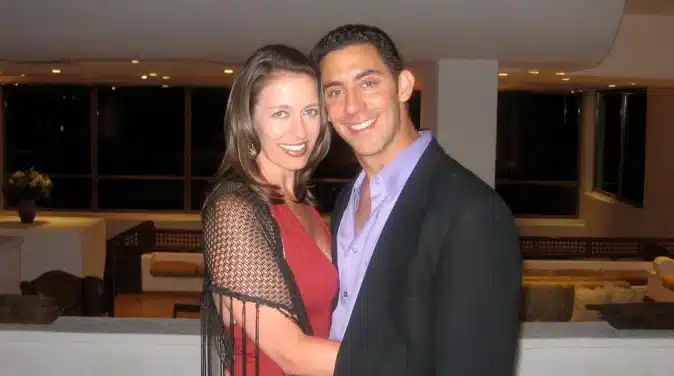Should We Get Rid of Marriage Altogether?

- Commitment, Marriage, What a Good Marriage Should Feel Like
Lest you think I only post articles with which I agree, here’s an anti-marriage take from The Atlantic called What You Lose When You Gain a Spouse.
Instead of making the tired case that marriage is dead (it’s not; only 14% of people say they never want to get married), the author takes the 40,000 foot overview that there is a societal cost to the institution of marriage itself.
But first she starts with a quote she doesn’t believe: “When my friends cite the benefits of marriage, they often point to an intangible sense of belonging and security: Being married just “feels different.” This is true.
Then again, this is also true: “Compared with those who stay single, married folks are less likely to visit or call parents and siblings—and less inclined to offer them emotional support or pragmatic help with things such as chores and transportation. They are also less likely to hang out with friends and neighbors.”
How can that be? Two completely valid, yet contradictory ideas on the same exact subject? And that, essentially, is my take on Catron’s take. It’s true – and it selectively focuses on half the story – that having a best friend, lover, and partner-in-crime who shares your bed does, in fact, make you less likely to seek out other company.
“…I was surprised that no one seemed to be talking about the isolation of modern romantic commitment. Many couples who live together but aren’t married are likely to experience at least some of the costs and benefits associated with marriage. The expectations that come with living with a serious partner, married or not, can enforce the norms that create social isolation. In the months after Mark moved into my apartment, I enjoyed the coziness of our shared domestic life. I liked having another person to help walk the dog and shop for groceries. I loved getting into bed with him every night.
If you gain more than you lose, it’s a big win. If you lose more than you gain, you’ll be unhappily married or divorced.
But when I looked at my life, I was surprised by how it seemed to have contracted. I didn’t go out as much. I got fewer invitations for after-work beers. Even my own parents seemed to call less often. When invitations did arrive, they were addressed to us both. We hadn’t even discussed marriage yet, but already it seemed everyone had tacitly agreed that our step toward each other necessitated a step away from friendship and community. I was happy in our home, but that happiness was twinned with a sense of loneliness I hadn’t expected.”
Yep. Like everything in life, marriage is a tradeoff. If you gain more than you lose, it’s a big win. If you lose more than you gain, you’ll be unhappily married or divorced.
Catron does make a valid case – made by Eli Finkel in The All Or Nothing Marriage – that we expect too much from marriage. One person is now supposed to provide what an entire community provided in the past. She’s right. And it’s why choosing the right spouse is literally the most important decision you’ll ever make. Pick someone selfish or inconsistent or irresponsible or uncommunicative and you are in for a miserable life, no matter how much fun and attraction you shared the first few years of dating.
That doesn’t make marriage problematic. Marriage is fine. What needs to evolve is our understanding of what makes a GOOD marriage BEFORE you get married.
The article closes with an interesting question.
Governments, hospitals, insurance companies, and schools assume that marriage (and subsequently the nuclear family) is the primary unit of care. But of course love—and the care it necessitates—is much more far-reaching and unwieldy than that. What if you could share health-care benefits with your sister and her son? Or take paid leave to be with a close friend who had an operation? In a country with epidemic rates of loneliness, expanding our sense of what counts as meaningful love—and acknowledging and supporting relationships in all their forms—could have enormous benefits. Energy spent striving to prop up the insular institution of marriage could instead be spent working to support family stability in whatever form it takes.”
A useful angle, for, indeed, it’s important to have other friends, family, co-workers to round out your life beyond your spouse. But the author’s insistence that marriage is just being “propped up” by society and that we should just move to a marriage-less world? Sounds nice for a thinkpiece; not that valid for those of us who actually like being married.
Your thoughts, below, are greatly appreciated.









Comments